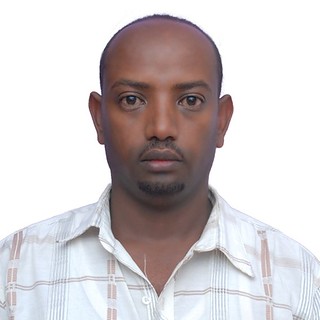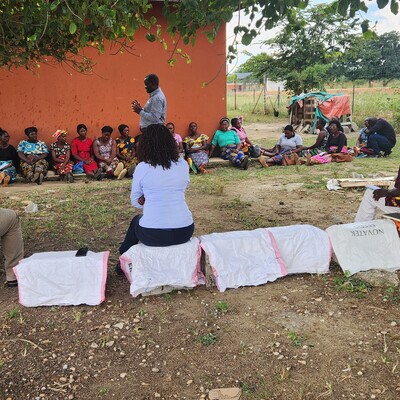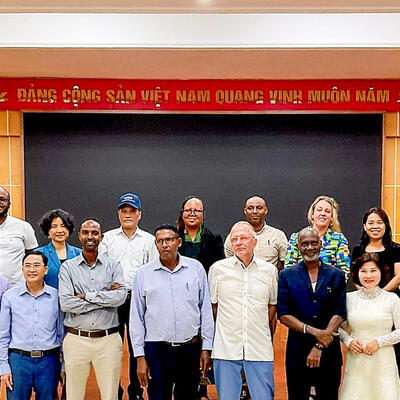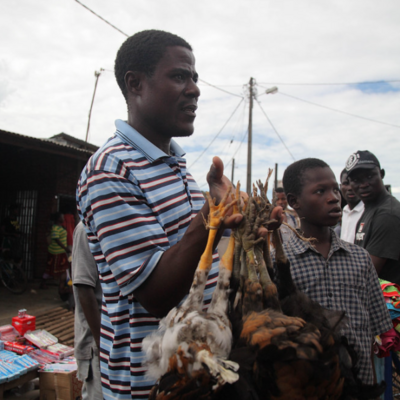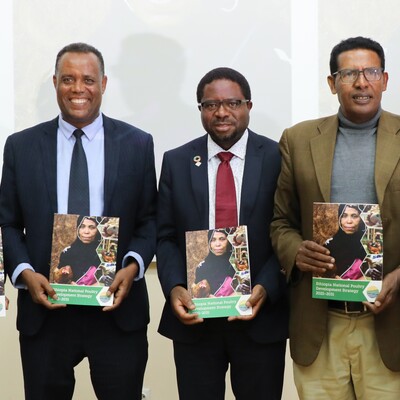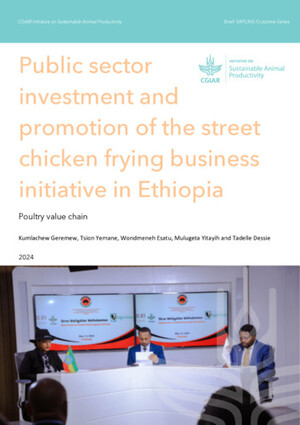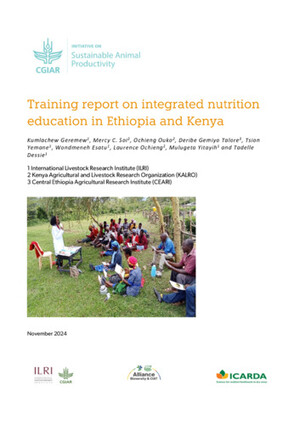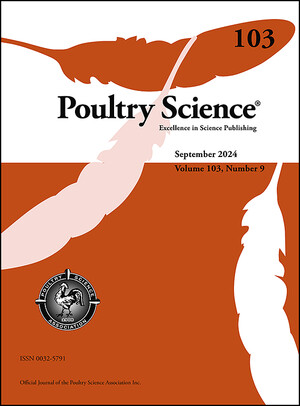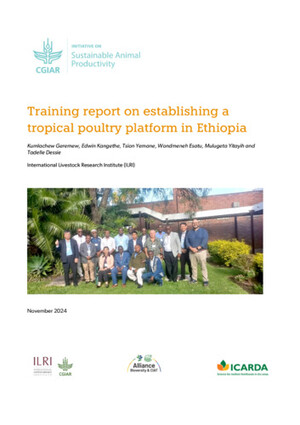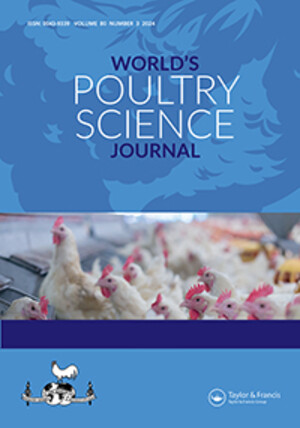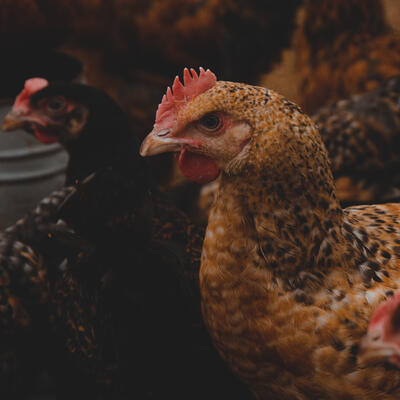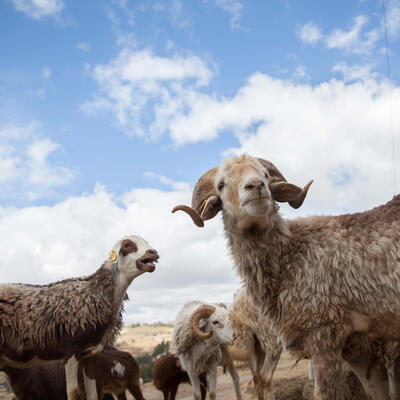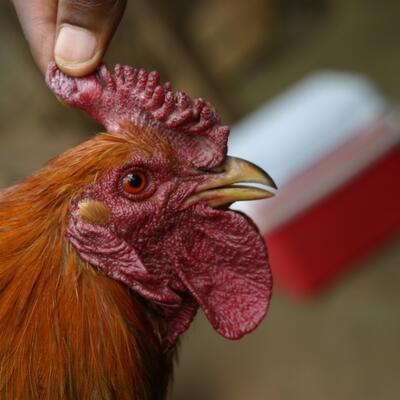
Voices on chicken genetics: A positive view of poultry’s role in improving household nutrition
Mesfin Lakew is subnational coordinator for the African Chicken Genetic Gains (ACGG) Project in the Amhara region in Ethiopia. In this interview he discusses his role and vision for the project. This post is one of a series of portraits of key people in the project.
Tell us about your background?
I have a BSc degree in animal production and rangeland management from Hawassa University, and a master’s degree in animal genetics and breeding from Bahir Dar University. I have worked in livestock research for 17 years. I spent 16 years in various positions at the Sirinka Agricultural Research Center, including working as coordinator of the Livestock Research Directorate. In the past year, I have been working as associate researcher at the Amhara Agricultural Research Institute in Bahir Dar, mainly focusing on research in small ruminants and poultry, and supervising research projects at the regional level. I am also the subnational coordinator (SNC) for the African Chicken Genetics Gain (ACGG) project in the Amhara Region.
What is your role in ACGG and what are you currently working to accomplish?
As subnational coordinator for ACGG in Amhara, I am involved in managing the project activities together with three supervisors, including the distribution of chicken strains to farmers, data collection, budget and staff administration, organization of community innovation platforms and report writing. So far, we have received and distributed four chicken strains to farmers and we are now working towards distributing the remaining Horro breed.
What is the next piece of work you are focusing on right now in ACGG?
We are now focusing on conducting community innovation platforms and discussing the issues raised by the chicken producers and other stakeholders. The routine activities of data collection, supervision of the distributed strains, providing vaccination and farmers’ training on human nutrition and gender are also continuing. In the coming weeks, we will also distribute the Horro breed to farmers.
What are some interesting research findings in ACGG in your region?
Early on we had conducted a baseline survey and the data is now being analyzed by the national team. The results of the baseline survey will give us a clear picture of the poultry production system in Amhara and will also help us identify our future research and development directions, and the research questions that need to be addressed. Although the project is still working on selecting the best productive and adaptive breeds, we have so far observed that farmers have an encouraging and positive attitude towards the improved breeds. We are also seeing changes in household nutrition and gender roles in chicken farming in the region.
What are some of the most intriguing or innovative research question that you want to explore in ACGG?
In our country, many organizations have policies and procedures in place to ensure and/or include gender issues in their projects. In principle, we do have the commitment, but when it comes to practice there are many shortcomings. What makes ACGG different is that the issue of gender is well addressed in project implementation and much has been done in this regard. Hence, I am very interested in exploring and analyzing gender relations in farming households in relation to selected chicken breeds and the influence of gender dynamics in the poultry value chain.
What are you seeing as unique in your region?
I have observed that chickens distributed in Kalu District are better performing; this is probably due to their management and differences in agro-ecology. In Kalu, most participant farmers have a better understanding of chicken management practices, including healthcare. Amazingly, all the farmers have well-cleaned, isolated and meshed houses for their chickens in this district and particularly for young women there, chicken production and other off-farm activities are a major part of their livelihood.
Why does ACGG matter and what gets you excited about this project?
I think what gets me excited about ACGG is its research components and its focus on regions that are usually sidelined. The first thing is the breeds; this project is doing research to select the best farmer-preferred chicken breeds.
The second point of interest for me is the emphasis given to gender and human nutrition. Since women’s involvement in chicken production is extensive, prioritizing them will play a role in the project’s sustainability. All these components will contribute to improving food and nutrition security, increasing smallholders’ income, particularly for women, and creating jobs.
I am also excited about the involvement of partners like the national agricultural research system. Also the platform component of the project is very interesting because it facilitates consensus building and helps to identify issues in the poultry value chain that affect stakeholders.
What about the project causes concern for you and how could this be addressed?
Our major concern is the delay in distributing chicken strains to farmers. We regularly update the farmers about our progress and the reasons for delays. We have these updates because we need to keep farmers motivated and keep them from dismantling the chicken houses they have built.
The other challenge we faced is enumerator’s turnover. In such cases, our immediate action is using the enumerators in other villages to avoid data discontinuity.
Thirdly, we have also encountered challenges in administering vaccination. Due to several reasons, the district veterinary experts were not able to assist us in providing the vaccination. To overcome this and ensure timely delivery, we are working with and providing the vaccines with the help of our animal health researchers.
What do you foresee as the lasting impact of ACGG?
I believe that ACGG will provide the best adaptive and productive chicken strains to smallholder chicken producers in Ethiopia. The project’s will bring improvements in the poultry value chain. The other lasting impacts of ACGG that I foresee are the improvements in human nutrition and the conditions for women, especially in income generation and decision-making on the resources they have. I hope the project will also lead to strong partnerships and collaboration among stakeholders.
Any other thought you would like to share?
The research components of ACGG and working with different partners are very important in helping us to better understand the whole poultry value chain. Because ACGG is an extensive project that is working on different aspects of the poultry value chain at a time, keeping all partners engaged throughout the project period is also critical for our success. I believe the project will bring sustainable changes and create a more positive view of poultry production in Ethiopia.





